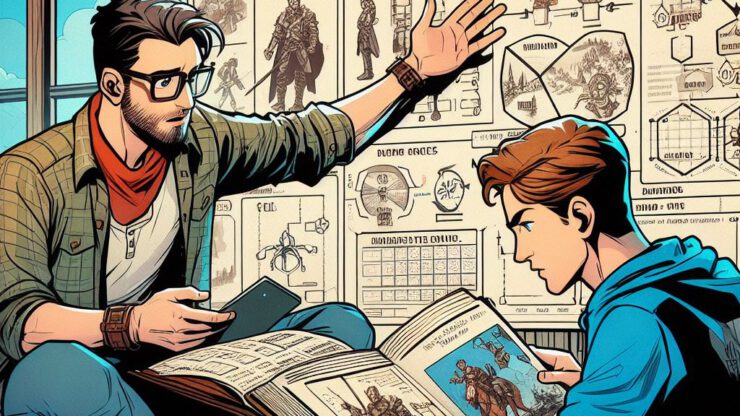Last time in the series I wrote about the “Matt Mercer” effect and the misconception that every TTRPG session has to look like an episode of “Critical Role”. Today I want to share my thoughts on something which seems more obvious, but isn’t.
If you want to play any game, you need to understand its rules. Both the ones written in a rules booklet or rulebook, and the unspoken ones, which are also pretty important, especially in tabletop RPGs. Unfortunately many tabletop roleplaying game players tend to avoid learning the rules and drop the burden fully onto the gamemaster. It’s all fine and dandy if you are totally new to a game or the hobby, since nobody expect you to be an expert from day one. But things start to become more of an issue if players still can’t be bothered to learn the rules years into a campaign.
I am not talking about the nitty gritty details of any game you play, but if you’re playing D&D 5th Edition for example, each player should be able to read their character sheet, know which die to make rolls with and at least have a grasp of the fundamentals like the action economy or how task resolution works. It’s totally understandable that people have to look up special rules from time to time, especially if they’re not playing regularly, but asking the GM which dice to roll every single time gets old fast.
Understanding the unspoken rules, the social contract of tabletop RPGs, is often a bit easier than grokking the mechanics of complex games. The basic rule is to not be a jerk. Respect your fellow players and avoid “main character syndrome”. Remember that roleplaying games are a group activity and everyone should have fun – including the GM – and not just you.
If you are in doubt, just talk to your group. If you are having trouble understanding the rules, be open about it. Some games can be very complicated and not everyone is good at memorizing them. But you should make a real effort. Even though a lot of responsibilities lie on the shoulders of your GM, players have responsibilities, too, and this is one of them.
